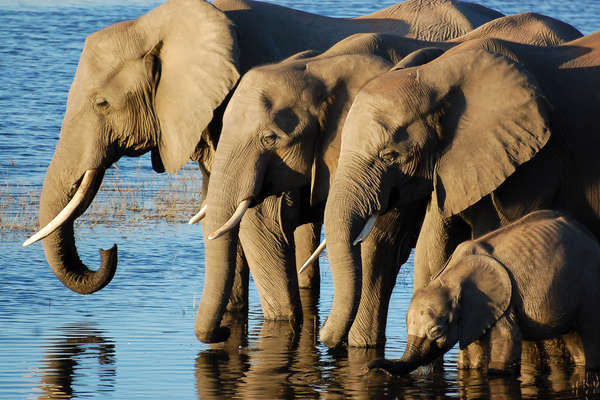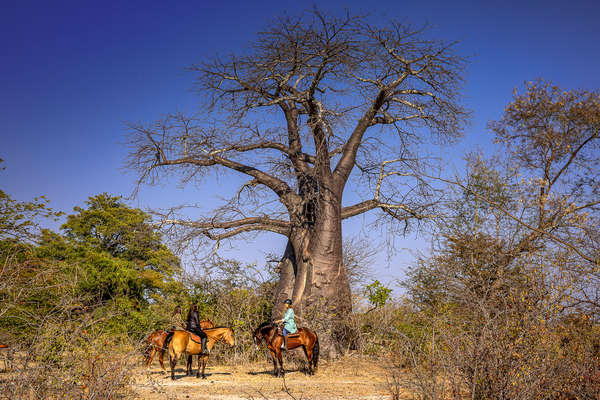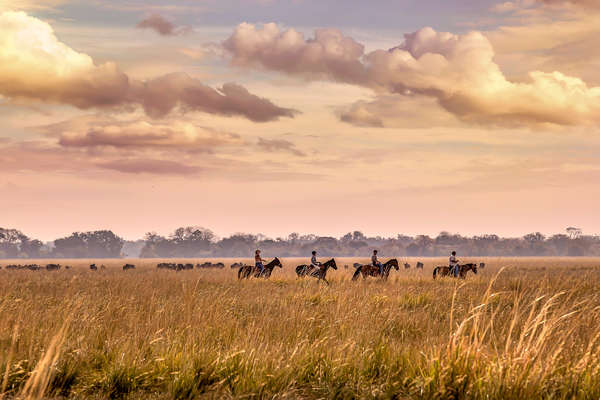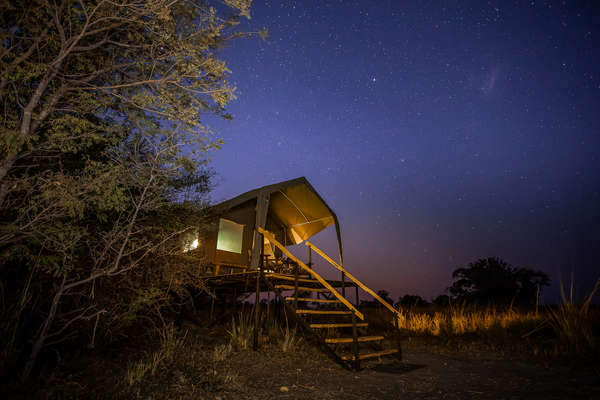Comfort
You’ll spend 4 nights in the wonderful Simalaha camp. All tents have ensuite open air bathrooms, and seating on the front deck. Water and electricity are generated by solar power making this a perfectly sustainable and eco-friendly camp. USB port chargers are available on your reading lights and additional charging facilities are located in the camp lounge and dinning area. There is WiFi in the main tent.
This camp offers the perfect opportunity for the guests to enjoy an off-the-grid experience. It is also possible to spend a night sleeping under the stars on a camp-out experience (weather-dependent)
The other 3 nights will be spent in the Chundukwa River Lodge, where you’ll have the opportunity of staying in riverside chalets each with their own bathroom. In this luxurious accommodation, you can relax by the swimming pool, or even on the viewing deck from which you can admire the Zambezi river.
Meals
At Simalaha Camp, guests are offered tasty cuisine in the style of home cooking. Proteins are sourced from local farmers and many of the greens are home-grown. When at Chundukwa you are served a continental buffet and cooked breakfast. Chundukwa has its own vegetable garden that produces beautiful crops of organic cherry tomatoes, strawberries, aubergines, marrows, rocket & lettuce and a large variety of herbs.
Meals are served with water, tea, coffee, house beer, house wine and soft drinks. These drinks are included in the rates but additional/premium drinks cost extra.
Note: dietary requirements can be accommodated, please make sure to informs us prior to booking.
Climate
The climate in Livingstone is warm and temperate, and the average annual temperature is 22.7 °C. October is usually the warmest month with an average temperature of 27.4°C, and July is the coldest with an average temperature of 17.4°C.
Tips
Tipping is at discretion of the guest. We would recommend $15-20 per person per day, to be shared with the team.
Packing list
Our Recommendations
- Wherever possible you should wear neutral colours, such as beige, brown or natural bush colours for riding as bright colours, such as red, yellow or white can startle the wildlife and they will see you long before you've seen them
- We recommend travelling in your riding boots and carrying your hat and some riding clothes in your hand luggage - then if your luggage goes astray you are still able to ride!
- You must bring a headtorch or small torch for moving around camp at night.
- There is limited electricity at Camp (USB ports available), a solar charging bank could be a useful item to charge camera batteries
Head
- It’s mandatory that you wear a riding helmet and that you take your own to ensure a correct fit.
- Sunhat for when not riding
- Sunglasses - with a cord attached so they don't fly off when riding
- Buff or bandana
Upper body
- Long sleeved shirts provide protection from the sun and thorns
- T-shirts
- Fleece, jumper or jacket - the evenings can be cold, particularly June - August
- Waterproof jacket - the rains can be difficult to foresee and it's better to be prepared. Rain is more likely Oct-April, but in the Delta you may appreciate a waterproof jacket for splashy canters May-September
- Casual clothes for the evening
Legs
- Lightweight, comfortable riding trousers or jodhpurs - we recommend riding in them at home before taking them on holiday to ensure they don't rub
- Shorts for lazy lunchtimes
- Casual clothes for the evening
Hands and Feet
- Comfortable riding boots. We recommend short boots with half chaps but you may wish to take long chaps to protect against thorns. We don't recommend taking your favourite long leather boots in case they get damaged.
- Sandals, flip-flops or trainers for moving around the lodge and camp
- Gloves - your hands are particularly exposed to the sun whilst riding
Nightwear
- Pyjamas
Other useful items
- Swimsuit
- Binoculars for viewing game
- Camera and high capacity memory card. Spare battery
- Bumbag for carrying your camera and small items whilst riding
Medical kit
- Sunscreen and lip balm - must be high factor
- Insect repellent, preferably containing deet
- Any medication you regularly take
- Blister plasters in case of any rubs
- Antiseptic cream, plasters, aspirin, anti-histamine, insect-bite salve etc...
- Spare prescription glasses/contact lenses
- Anti malarial tablets and Yellow Fever Certificate if required (check with your doctor)
A first aid kit is available in camp but please make sure to bring any prescription medication with you.
Our Recommendations
- We recommend travelling in your riding boots and carrying your hat and some riding clothes in your hand luggage - then if your luggage goes astray you are still able to ride!
- You should also bring a copy of your passport/insurance in case you lose your documents. You can also save a copy into your mobile phone.












